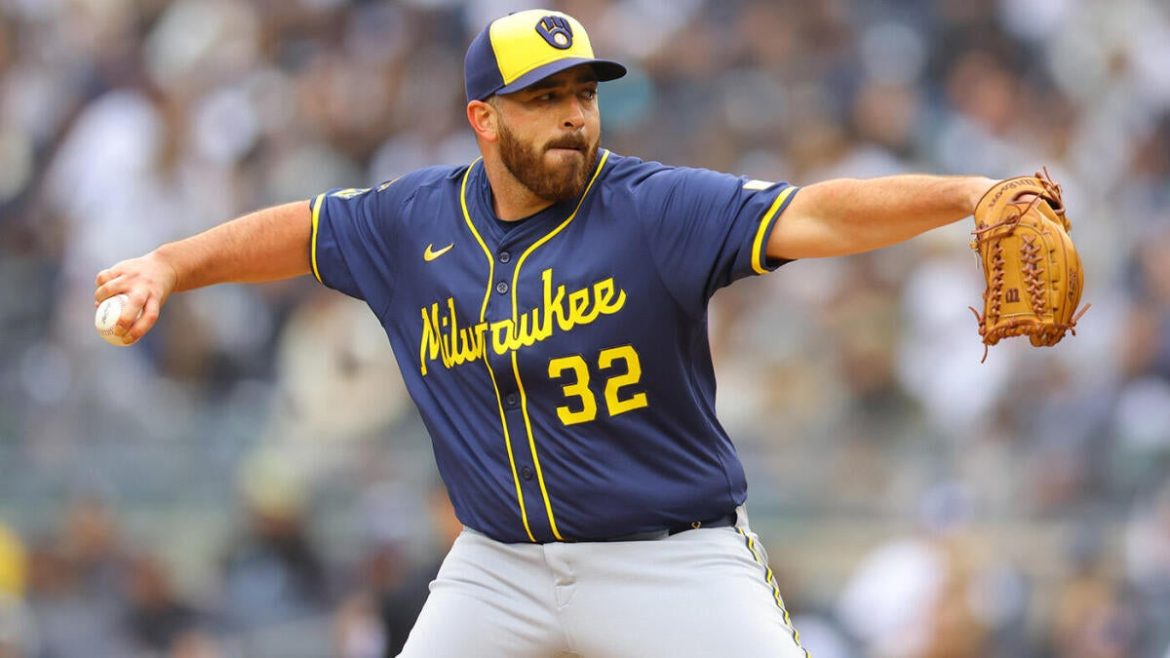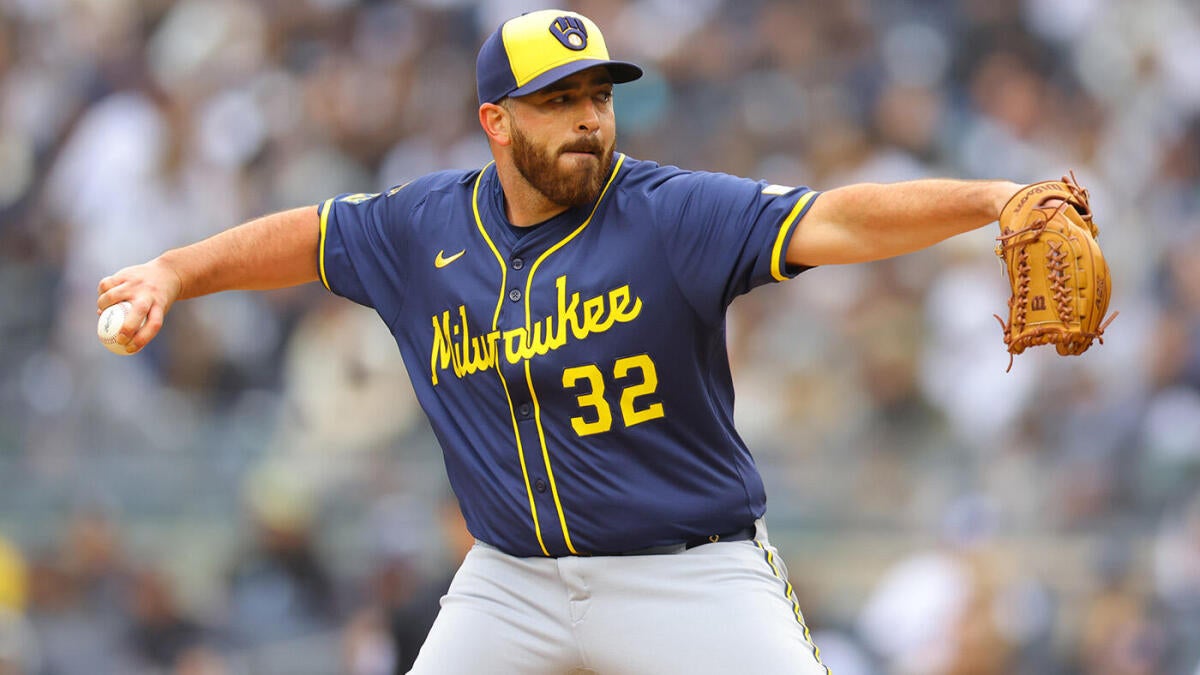Trade Overview: Brewers and White Sox Swap Aaron Civale and Andrew Vaughn
In a rapid exchange just one day after Aaron Civale requested a trade, the Milwaukee Brewers have traded the veteran right-handed pitcher to the Chicago White Sox in return for first baseman Andrew Vaughn. This move was executed quickly after Civale expressed a desire to remain in the starting rotation, signaling a clear mismatch in roles with the Brewers who had shifted him to the bullpen.
—
Background and Context of the Trade
Aaron Civale, a 30-year-old right-hander, was acquired by the Brewers last July from the Tampa Bay Rays. After joining Milwaukee, Civale performed solidly, recording a 6-3 win-loss record with a 3.53 ERA across 14 starts. However, this season he struggled somewhat, posting a 1-2 record with a 4.91 ERA and 19 strikeouts in 22 innings over five starts.
Despite his track record as a starter, the Brewers recently removed Civale from the rotation, moving him to the bullpen. This decision evidently did not sit well with the pitcher, who preferred starting duties—a factor that prompted his trade request.
On the other side, Andrew Vaughn, 27, is a first baseman who has also seen time in the outfield. Vaughn’s performance with the White Sox has been underwhelming this season, slashing just .189 with a .218 on-base percentage, five home runs, and 19 RBIs in 48 games. Additionally, Vaughn was assigned to Triple-A Nashville by the Brewers following the trade, indicating the Brewers might be aiming to refine or reset his development.
—
Analysis of the Players Involved
Aaron Civale
– Strengths: Experienced starter; demonstrated reliability in mid-rotation roles; effective pitch mix.
– Challenges: Mixed results in the current season; adjusted role from starter to bullpen created dissatisfaction.
– Potential Impact for White Sox: Likely to slot into the starting rotation immediately, addressing Chicago’s need for pitching depth.
Andrew Vaughn
– Strengths: Left-handed power potential; positional versatility at first base and outfield.
– Challenges: Struggles with consistency and on-base skills so far this year; offensive production below expectations.
– Potential Impact for Brewers: Vaughn represents a younger bat with upside who may benefit from a change of scenery and additional development in Triple-A.
—
Financial and Contractual Considerations
From a contract standpoint, Vaughn is earning approximately $5.85 million, which is not drastically cheaper than Civale’s salary, though exact details of Civale’s deal were not fully disclosed in the public reports. Including cash considerations in the trade hints at efforts from both teams to balance financial impacts or offset salary disparities.
—
Strategic Motivations Behind the Trade
For the Milwaukee Brewers, acquiring Vaughn adds a left-handed power bat that can be nurtured into a regular contributor. By moving Civale, the team also opens up bullpen and rotation flexibility, possibly indicating confidence in other pitchers or adjustments in team composition.
For the Chicago White Sox, adding Civale offers an immediate upgrade in starting pitching depth, filling a rotation spot with an experienced arm who wanted a chance to start rather than relieve. This aligns with the White Sox’s continued efforts to rebuild or retool their pitching staff amid their ongoing evaluation of roster pieces.
—
Immediate and Long-Term Implications
For the Brewers:
– Vaughn in Triple-A suggests a period of refinement before a potential call-up.
– The move may signal a shift to prioritize offensive upgrades or positional versatility.
– Could also reflect a broader roster overhaul given multiple recent roster moves involving former Brewers.
For the White Sox:
– Civale is expected to take a starting spot promptly, adding stability.
– The team gains a pitcher aligned with their rotation needs and likely to be a key contributor.
– Represents a commitment to pitching development and rotation solidity.
—
Trade Evaluation and Grade
From a purely quantitative perspective, some analytics platforms have noted that Civale and Vaughn have not delivered positive contributions in terms of wins above replacement (WAR) this season; Civale stood at approximately 0.0 rWAR, while Vaughn was at around -1.6 rWAR. This suggests both players have faced challenges.
However, the trade’s value lies more in fit and potential than current output. Civale’s desire to start and the White Sox’s need for starters makes the deal mutually beneficial. Meanwhile, Vaughn’s youth and positional flexibility offer the Brewers an avenue to cultivate a potentially valuable asset.
—
Conclusion: A Trade of Opportunity and Role Alignment
This Brewers-White Sox trade demonstrates how player roles and organizational needs drive transactions beyond mere statistics. Civale’s request to be traded after a role change highlights the personal and professional dimensions influencing trades, while the swift response by the Brewers underscores a willingness to accommodate and optimize their roster.
For the White Sox, acquiring Civale aligns with pitching needs and capitalizes on an opportunity to add a starter eager to contribute. For the Brewers, Vaughn provides a fresh offensive option with upside, aligning with development strategies and roster flexibility.
Ultimately, this trade offers both teams a chance to reset and refine their rosters as the season progresses, making it a strategic move rooted in fit and opportunity rather than headline-grabbing statistics.





